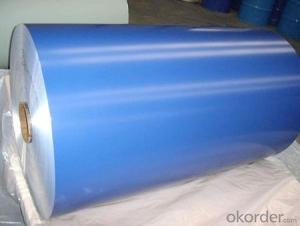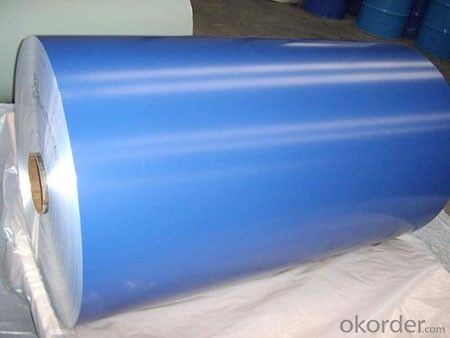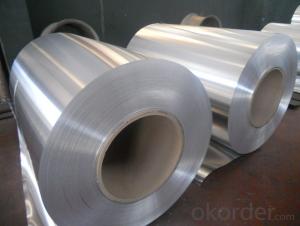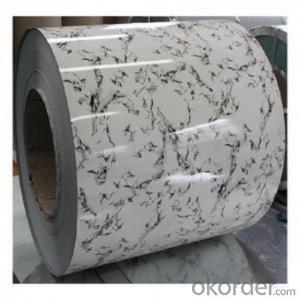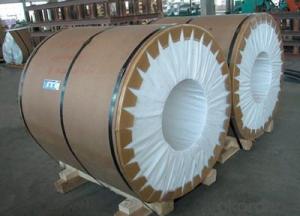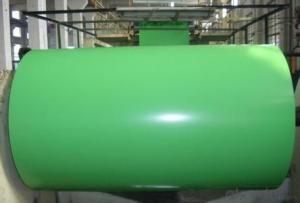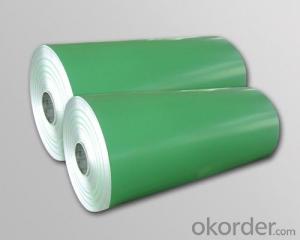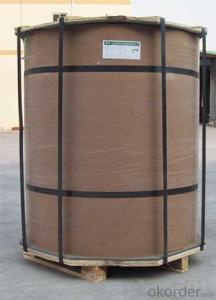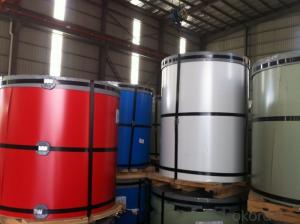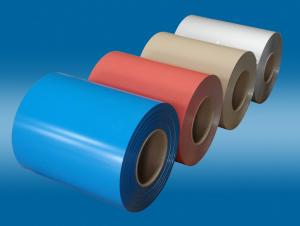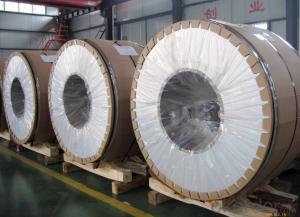Aluminum Copper Coil - PE Coated Aluminium Coil 5xxx
- Loading Port:
- China Main Port
- Payment Terms:
- TT OR LC
- Min Order Qty:
- -
- Supply Capability:
- -
OKorder Service Pledge
OKorder Financial Service
You Might Also Like
Product Description:
1 Specifications of PE Coated Aluminum Coil/Sheet
Alloy | AA1050,AA1060, AA1070, AA1100, AA3003, AA3004, AA3005, AA3105, AA5005, AA5052, AA5754, AA5083, AA8011 |
Temper: | H12, H14, H16, H18, H22, H24, H26, H32,HO, F |
Thickness: | 0.10-4.0mm |
Width: | 10mm- 2000mm |
Coating | PE(Polyester) |
Painting Thickness | Standard 16-25 microns, max 40 microns |
Color | Acording to Ral colors or customer’s samples |
Standard: | GB/T17748-1999, ASTM, ISO, EU standard |
Special Specification is available on customer’s requirement | |
PE(polyester) Coating
PE(polyester) coating:high molecular polymer as monomer and addition of alkyd, is an UV-resistant coating. It can be classified matt and glossy according to coating gloss. The compact molecule structure, makes paint surface luster and smooth,which assure good printing on the panel surface. With an warranty of 8-10 years for weather resistance, it is specially applied for internal decoration and sign board.
2 Usage/Applications of PE Coated Aluminum Coil/Sheet
Our company's PE Coated Aluminum Coil/Sheet have been widely used in the fields of construction and decoration(garage doors, ceiling etc.), electronic appliances, lighting decoration, air-condition air pipe, sanwich panels and drainage, etc.
- Q: Can aluminum coils be used in the production of aluminum wire?
- Aluminum wire production can utilize aluminum coils as a starting material. To create aluminum wire, aluminum rods or bars are drawn or extruded through dies to decrease their diameter and increase their length. Aluminum coils, which are continuous rolls of aluminum sheet or strip, can serve as the initial material for this procedure. Initially, the aluminum coils are unwound and introduced into the wire production line for further processing. They undergo annealing, cleaning, and are then fed through a series of drawing dies to reduce their diameter and increase their length until the desired wire gauge is achieved. Consequently, aluminum coils prove to be an efficient and cost-effective starting material for aluminum wire production.
- Q: Is it safe or practical to use an electric iron as a heat source for an aluminum coil?
- <p>Using an electric iron to heat an aluminum coil is not advisable. Electric irons are designed to heat their own plates for ironing clothes, not to transfer heat to other materials like aluminum coils. The high temperature of an iron could damage the coil and potentially cause a fire hazard. Moreover, aluminum has a high thermal conductivity, which means it would dissipate heat quickly, making it inefficient to use an iron for this purpose. Always use heating elements specifically designed for the material you intend to heat.</p>
- Q: Would an SS scribe scratch an aluminum plate? What is the hardness value of both metals?
- SS is much harder than aluminum and it would scratch an aluminum plate. Google the materials to get hardness values.
- Q: What are the standard tolerance levels for aluminum coils?
- The standard tolerance levels for aluminum coils can vary depending on the specific requirements and industry standards. However, common tolerance levels for aluminum coils typically range from +/- 0.003 to 0.020 inches for thickness, and +/- 0.005 to 0.100 inches for width. It is important to consult the appropriate industry standards and specifications to determine the specific tolerance levels needed for a particular application.
- Q: If this is true then how do I take my aluminums temperature without fear of breaking the themometer and get mercury all over it?
- It's easy - don't use a mercury thermometer. In fact, don't use a liquid thermometer at all. Go solid state and use a contact thermocouple thermometer - cheap as sh*t and accurate to 0.1C. Or, if the temp is high and relatively inaccessible, use an infrared or laser pyrometer.
- Q: Is it possible to utilize aluminum coil as a conductor for speaker wires?
- <p>While it is technically possible to use aluminum coil as speaker wire, it is not recommended. Aluminum has higher resistance and lower conductivity compared to copper, which is the standard material for speaker wires. This can result in signal loss and reduced sound quality. Copper is preferred due to its superior electrical conductivity, ensuring minimal signal degradation over distance. For optimal audio performance, it's best to use speaker wire made from high-quality copper or copper-clad aluminum.</p>
- Q: Foshan where there are high-quality aluminum and aluminum rolls for sale?
- If you know where to use, or what are the requirements of the words I can occasionally recommend you manufacturers give you, because I am in this industry!
- Q: How are aluminum coils coated or treated for specific applications?
- Aluminum coils are coated or treated for specific applications through various processes such as painting, anodizing, and thermal spraying. These treatments enhance the coil's durability, corrosion resistance, and aesthetic appeal. For example, painting involves applying a protective coating of paint to the aluminum surface, while anodizing involves creating a layer of oxide on the surface to improve resistance to wear and corrosion. Thermal spraying is another method where a coating material is sprayed onto the surface using heat, providing additional protection and specific functional properties.
- Q: Can aluminum coils be utilized in the process of welding?
- <p>Yes, aluminum coils can be used for welding work. They are commonly used as filler material in processes like MIG (Metal Inert Gas) welding. Aluminum welding requires specific techniques and equipment due to its high thermal conductivity and the need for shielding from oxidation. The aluminum coils must be of good quality and compatible with the welding process to ensure a strong and durable weld. Proper selection of welding parameters, such as amperage and voltage, is crucial for successful aluminum welding.</p>
- Q: What are the common international standards and certifications for aluminum coils?
- Some common international standards and certifications for aluminum coils include ISO 9001 (Quality Management System), ISO 14001 (Environmental Management System), and ISO 45001 (Occupational Health and Safety Management System). Other certifications specific to aluminum coils may include ASTM (American Society for Testing and Materials) standards and certifications from industry associations such as the Aluminum Association.
Send your message to us
Aluminum Copper Coil - PE Coated Aluminium Coil 5xxx
- Loading Port:
- China Main Port
- Payment Terms:
- TT OR LC
- Min Order Qty:
- -
- Supply Capability:
- -
OKorder Service Pledge
OKorder Financial Service
Similar products
Hot products
Hot Searches
Related keywords
